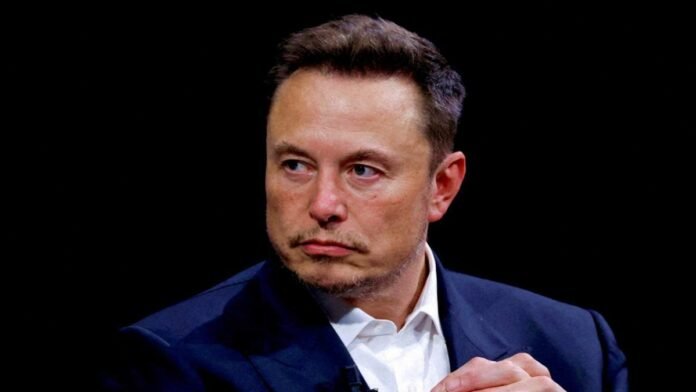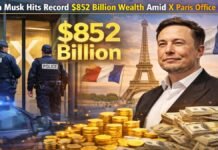
Key Points:
- Elon Musk launched a July 4th poll on X, asking if the U.S. should break from the two-party system and form a new “America Party”.
- The move comes amid Musk’s intensifying public feud with President Donald Trump over the administration’s $4.5 trillion “Big, Beautiful Bill”.
- Musk’s poll and recent comments signal a dramatic shift from his previous role as a Trump advisor and major donor.
- A new Quantus Insights poll finds 40% of Americans would consider backing Musk’s party, with strong interest among independents and some Republicans.
- Experts say Musk’s party could fracture the conservative vote but face steep odds in the U.S. winner-takes-all system.
- Musk has vowed to fund primary challenges against lawmakers who supported Trump’s bill, calling them “hypocrites” and promising political consequences.
San Francisco: On U.S. Independence Day, tech mogul Elon Musk reignited his feud with President Donald Trump by proposing a dramatic break from the American political status quo. In a widely shared poll posted on X (formerly Twitter), Musk asked his 180 million followers:
“Should we create the America Party?”
He framed the poll as a call for “independence from the two-party (some would say uniparty) system,” arguing that July 4th was the perfect moment to question whether Americans want a new political force. The poll quickly went viral, reflecting growing frustration with both major parties.
A Feud Reaches Boiling Point
Musk’s move comes as tensions with Trump have escalated over the administration’s sweeping “Big, Beautiful Bill” a $4.5 trillion tax and spending package that makes Trump-era tax cuts permanent, slashes healthcare and food assistance, and boosts border and defense spending. Musk, who previously served as a senior advisor in Trump’s administration and was a major donor to his 2024 campaign, has become one of the bill’s fiercest critics.
In early June, Musk called the legislation a “disgusting abomination,” sparking a very public rift with Trump. Although the two briefly dialed back their attacks later that month, Musk renewed his criticism as the Senate debated the bill, accusing lawmakers of hypocrisy and betrayal.
“Lawmakers who campaigned on cutting spending but back this bill should hang their heads in shame! And they will lose their primary next year if it’s the last thing I do on this Earth,” Musk wrote on X.
He has also threatened to pour millions into funding primary challengers against Republicans who supported the bill and publicly backed GOP Congressman Thomas Massie, who voted against the legislation.
Public Support for a Third Party
Musk’s Independence Day poll and his talk of an “America Party” have quickly gained traction. A new Quantus Insights poll found that 40% of Americans would consider supporting a Musk-led third party, with 14% “very likely” and 26% “somewhat likely” to back it. The poll suggests Musk’s initiative could attract independents and disaffected Republicans, potentially fracturing the conservative vote in 2026.
However, political experts remain skeptical, noting the historical difficulty of third parties in the U.S. system and warning that such a move could ultimately benefit Democrats by splitting the right-leaning electorate.
Musk’s Policy Grievances
Musk’s opposition to Trump’s bill centers on its “insane” spending, the elimination of electric vehicle and renewable energy tax credits (which could hurt Tesla and other future-focused industries), and what he calls “handouts to industries of the past”. He warns the legislation will “destroy millions of jobs in America and cause immense strategic harm to our country”.
Trump, meanwhile, has dismissed Musk’s criticisms as sour grapes over the loss of EV tax credits, and has accused Musk of “Trump derangement syndrome”. The president has also threatened to scrutinize government subsidies to Musk’s companies.
What’s Next?
With Trump’s bill now set to be signed into law, Musk’s political ambitions and his threat to upend the GOP’s electoral prospects are drawing national attention. Whether the “America Party” becomes a lasting movement or a momentary flashpoint remains to be seen, but Musk’s latest move has already added a new layer of volatility to the 2026 election landscape.


















































